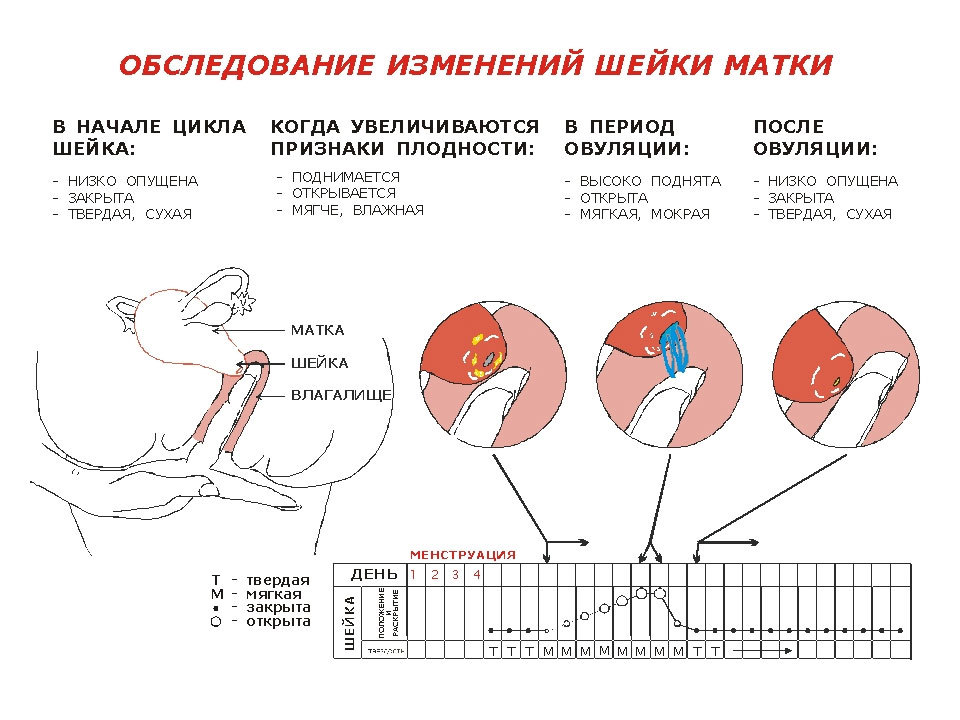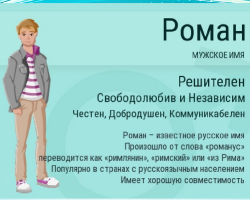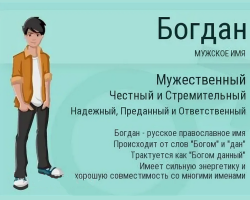Signs of pregnancy in the first days after fertilization.
Content
- How is fertilization?
- On what day after ovulation does pregnancy occur?
- Possible symptoms of conception: gastrointestinal tract disorder during pregnancy
- Cystitis: as a sign of pregnancy
- What are the sensations in the stomach after conception?
- How does the basal temperature change after conception?
- How does the hCG level change after conception?
- Can breasts hurt immediately after conception?
- Can there be changes in behavior, psychological aspect?
- What can be the symptoms of conception when fertilizing the egg in the first week of 4, 5, 6, 7 days after fertilization?
- What can be the symptoms of conception in the fertilization of the egg in the second week by 8, 9, 10, 11, 12, 13, 14, 15 days after fertilization?
- What can be the symptoms of conception when fertilizing the egg in the third and fourth week after fertilization?
- How many days after conception do real symptoms of pregnancy appear?
- Video: Signs of pregnancy. How to diagnose to delay?
Unfortunately, nature ordered that women learn about their pregnancy about 3-4 weeks after conception. It is during this period that symptoms begin to appear, indicating that soon the fair sex will become a mother.
But still, to be as attentive as possible, even before this time you can notice indirect signs indicating that fertilization has occurred. What symptoms we can signal about this and talk in our article.
How is fertilization?

I immediately want to say that fertilization can only occur during the period of ovulation, which, as a rule, lasts only 24 hours. If at this time spermatozoa does not get to the ripened egg, then she will die, and the woman will not be able to get pregnant until the next ovulation. In view of this, if you want to plan your pregnancy, then be sure to consider this fact. Now let's talk about how fertilization occurs.
If you had unprotected sexual intercourse on the day of ovulation or for 3-4 for its onset, then the probability of conception increases significantly. If the organs responsible for childbearing are completely healthy and work as a clock, then already 6-12 hours after sexual intercourse, sperm will get to the egg. Their meeting will occur in the fallopian tubes and the merger will immediately begin, as a result of which zygote forms.
For some time she will continue to swim in the phallopium pipes, without ceasing to increase in size. After some time, the zygote will turn into a blastocyst, who will begin to advance to the uterus and look for the perfect place to introduce into its cavity. As soon as this happens, a woman can begin to feel the first inconspicuous signs of pregnancy.
On what day after ovulation does pregnancy occur?

As you already, probably, understood in order for pregnancy to come in a woman should grow up with a viable and healthy egg. If this is so, then there is a high probability that when meeting with sperm, fertilization will occur. True, you must understand that in order to happen, healthy, and most importantly, male sperm should be mobile.
As for the time when pregnancy can occur after ovulation, then it is worth considering when sexual intercourse occurred. If spermatozoa enters the female body on the day the egg is released, then the pregnancy will dry on the 7-10 day after ovulation.
If sexual intercourse occurred 3-4 days before ovulation, then the pregnancy will occur literally 4-5 days after the egg maturation. In this case, the woman will be able to determine the onset of pregnancy with ordinary test literally at the end of the menstrual cycle.
Possible symptoms of conception: gastrointestinal tract disorder during pregnancy

No matter how strange it may sound, but the gastrointestinal disorder during pregnancy is observed in every fourth woman. As a rule, this symptom appears as soon as a fertilized egg is introduced into the uterine cavity and a restructuring of the hormonal system begins in the woman’s body.
Against this background, in the female body, all processes, including those related to food absorption, are slowing down for a while. And since the intestinal decrease is minimized, a woman may intensify gas formation. In addition, the fair sex may have intolerance to products that will be accompanied by diarrhea, nausea and vomiting.
Usually, doctors attribute all these symptoms to early toxicosis and advise the future mothers for a while to abandon all products that the stomach does not tolerate. As practice shows, as soon as the body ceases to perceive the embryo inside a woman as something alien, all problems with the gastrointestinal tract disappear on its own, and the representative of the fair sex again returns to her usual diet.
Cystitis: as a sign of pregnancy

A fairly large number of women mistakenly perceive the symptoms of cystitis for inflammation of the urea and try to treat it intensified. In fact, in this way the body can react to pregnancy.
If the symptoms of cystitis are a sign of pregnancy, then the woman increases sharply the number of urge to urinate and the pain syndrome appears in the area of \u200b\u200bthe pubis located slightly above. But the rest of the symptoms (urine drooping and blood presence) are usually absent. Why appear all these symptoms?
As already mentioned a little higher, literally immediately after conception in the female body, the hormonal background begins to change, as a result of which the production of mucus in the vagina is intensified, which helps that the bacteria get from the urethra to the urea. It is also worth considering that immediately after fertilization, blood circulation in the small pelvis is intensified, against which the calls to the toilet may also become more frequent.
What are the sensations in the stomach after conception?

In principle, immediately after the fertilization of the eggs, women do not feel anything. All the time, while the zygote, the girl can form, in general, not suspect that a new life arises under her heart. But as soon as the embryo reaches the uterus and securely fixes in it, the body will begin to prepare for the bearing and birth of the baby.
It is at this moment that many women begin to feel that they became pregnant. As a rule, literally immediately after the embryo’s introduction into the uterus in a woman, a slight tingling tingling in the lower abdomen begins to be observed, which in very rare cases is accompanied by brown discharge. Notice, this should be the discharge more similar to mucus.
If you see bloody discharge, then this may indicate that the embryo could not gain a foothold and died, and the body began to get rid of it. In addition, there may be a causeless heaviness in the lower abdomen, which will not be accompanied by any other symptoms. As a rule, it disappears immediately after the baby begins to form a nervous tube of the fetus.
How does the basal temperature change after conception?

If you use measurements of basal temperature to determine ovulation, you can find out about your interesting situation even before special tests can determine it. To do this, you will only need to carefully monitor the obtained indicators. Those who regularly measure the basal temperature know that before ovulation its indicators do not exceed 36 degrees.
But as soon as the egg comes out of the yellow body, the temperature rises to 37 degrees. If the conception does not occur after ovulation, it again drops to 36 degrees and remains this until the next ovulation period. Well, if you are lucky and a new life arose under your heart, then the basal temperature will continue to stay 37 degrees.
How does the hCG level change after conception?

Hormone hCG appears in the body of a woman immediately after fertilization. Since the source of its formation is a shell that protects the fetus, it is possible to determine its presence in the woman’s body only on 7-10 days after conception, that is, after the egg meets spermatozoa and begins to be intensively divided.
As practice shows, the maximum indicators of hCG are observed for 10 weeks of pregnancy, and after that a gradual decrease in the amount of this hormone begins. True, you must consider that in the first days after conception there is a period when the level of XGH can be lowered to a minimum.
As a rule, this occurs during the period when the embryo is attached to the uterine cavity. Thus, the body creates conditions for this process to pass as quickly and well as possible. After the embryo is fixed, the level of hCH will again begin to grow.
Can breasts hurt immediately after conception?

As you already know, immediately after conception in the woman’s body, hormonal restructuring begins, as a result of which the body of the future mother begins to prepare for childbirth and, of course, feeding the baby.
And it is hormones that are to blame for the fact that the woman’s breasts begin to hurt. In particular, this is affected by the so -called hormone of pregnancy, which begins to stimulate the growth of the chest glands. Immediately after the embryo begins its development, hCG provokes the increase in the growth of glandular cells, and the connective tissue remains the same as it was before conception.
For this reason, glandular cells begin to put pressure on all nerve endings and, as a result, a woman experiences pain. In addition to pain, some girls can observe itching, light burning and tingling.
Can there be changes in behavior, psychological aspect?

If you carefully read our article, you probably realized that the first weeks of pregnancy are great stress for the female body. The cause of all negative consequences is hormonal chaos, which begins immediately after the fertilization of the egg. Such an uncontrolled hormonal storm has a very strong negative effect on the nervous system of the future mother.
As a result, the woman becomes very irritable, tearful and nervous. Her mood can change literally in a matter of seconds, she can at the same time laugh and cry or fall into apathy for no apparent reason. In addition, in the first weeks of pregnancy, women may have problems with sleep. A large number of girls feel fatigue throughout the day, but as soon as the night comes, they may have vigor and the desire to do something.
But do not think that all these problems will accompany you the entire period of bearing a child. After the tenth week of pregnancy, the placenta will begin to intensively produce hormones that normalize the condition of the woman. She will begin to sleep normally again and stop crying for any reason.
What can be the symptoms of conception when fertilizing the egg in the first week of 4, 5, 6, 7 days after fertilization?

According to experts, the first week after conception is a period that will show whether the embryochik will be able to gain a foothold in the uterine cavity or not. After the egg meets with a sperm at least 7 days before a viable embryo appears in the woman’s body, which will later turn into a boy or girl.
All this time, the body of the future mother will prepare to consolidate the embryo and, as a result, she will have the first indirect signs of pregnancy. A woman may have a slight bleeding, which will be accompanied by a barely noticeable pain syndrome in the lower abdomen. As a rule, smearing bloody discharge appears in the period when intensive updating of the uterine epithelium occurs.
The same discharge may appear in a couple of days, but in this case the cause of their appearance will be the implantation of the embryo. And although such secretions should not be afraid, it should be attentive to them. If you see that they begin to intensify, then you should urgently seem to the doctor. It is likely to fail in your body and you began a spontaneous miscarriage, and this is fraught with severe bleeding.
What can be the symptoms of conception in the fertilization of the egg in the second week by 8, 9, 10, 11, 12, 13, 14, 15 days after fertilization?

All second week after conception, the embryo is intensively divided and increased in size. All these processes pass for the future mother almost imperceptibly. But approximately 12 days after conception, the body begins to more intensively prepare for future childbirth and, against the background of this, a woman may have the first signs of toxicosis.
And although they will not be very pronounced, the future mommy may stop perceived by those products that she had very much liked before. Also during this period, new taste preferences may begin to form. Another characteristic feature of the second week of pregnancy is the vaginal discharge. If during ovulation they are more like a muddy egg protein, then after fertilization occurs, they become completely transparent.
Mucus without color and smell indicates that everything is fine with the woman’s body and pregnancy proceeds as necessary. If in the second week after conception you notice yellow or do not give a god of green discharge, then this is a reason to be wary. Mucus of this color indicates that inside your body there is an inflammatory process that can harm your baby.
What can be the symptoms of conception when fertilizing the egg in the third and fourth week after fertilization?

The third week after fertilization, gynecologists call a pregnancy. And this means that the embryo managed to successfully take root in the uterine cavity and every day becomes more and more like a small person. It is during this period that some internal organs begin to form, and three protective layers form around the fetal egg, which will subsequently become a bone, nervous and circulatory system.
It is clear that, against the background of such stormy processes, a woman begins to feel more and more obvious signs of pregnancy. Somewhere in the fourth week after conception, future mothers appear, drowsiness and mood swings. In addition, the fair sex in an interesting position has soreness of the chest glands and Montgomery tubercles begin to form.
For those who do not know, these are small pimples visually similar to goose skin located around the nipples. Also during this period, a woman may change libido. The most interesting thing is that everyone has these changes in different ways. In general, one, in general, ceases to want sexual contact with his partner, and the other, on the contrary, all the time it seems that they do not receive physical intimacy.
How many days after conception do real symptoms of pregnancy appear?

Women who have been trying to get pregnant for a long time, as a rule, begin to feel some changes literally immediately after unprotected intercourse. But, according to experts, in the first hours and even days after meeting the egg with spermatozoa, a woman cannot feel any signs of pregnancy.
All the time while the egg is in the fallopian tubes, the body will think that the conception did not occur. And only after the zygote turns into an embryo, and it will be introduced into the uterine cavity, a woman will begin to feel her future baby.
At the initial stage, these will be some indirect features, but as the embryo grows, more and more and most importantly, obvious symptoms of pregnancy will appear. As practice shows, about 5-6 weeks after conception, a woman can begin to feel the fullness of her uterus and even without the dough to determine that she is pregnant.








Probably every woman feels. When she gets pregnant. But I have not been given this, since how much we are not trying with my spouse, we can’t conceive a child.
Lydia, well, you stop. If there were no unsuccessful abortions, or some serious diseases that could lead to infertility, then everything else is solved. I even normalized the doctor, prescribing glutamine with folic acid, vitamins E, C, and zinc, in the form of capsules of the foller-factor to take me. Then I became pregnant without any problems. And you are right away in despair. Do not lose heart and run to the doctors.
Here I found all the answers that for a long time I could not understand and ask!
How to understand the pregnant woman, or not, or not, although I don’t feel sick, there is nothing to tear, just my back hurts